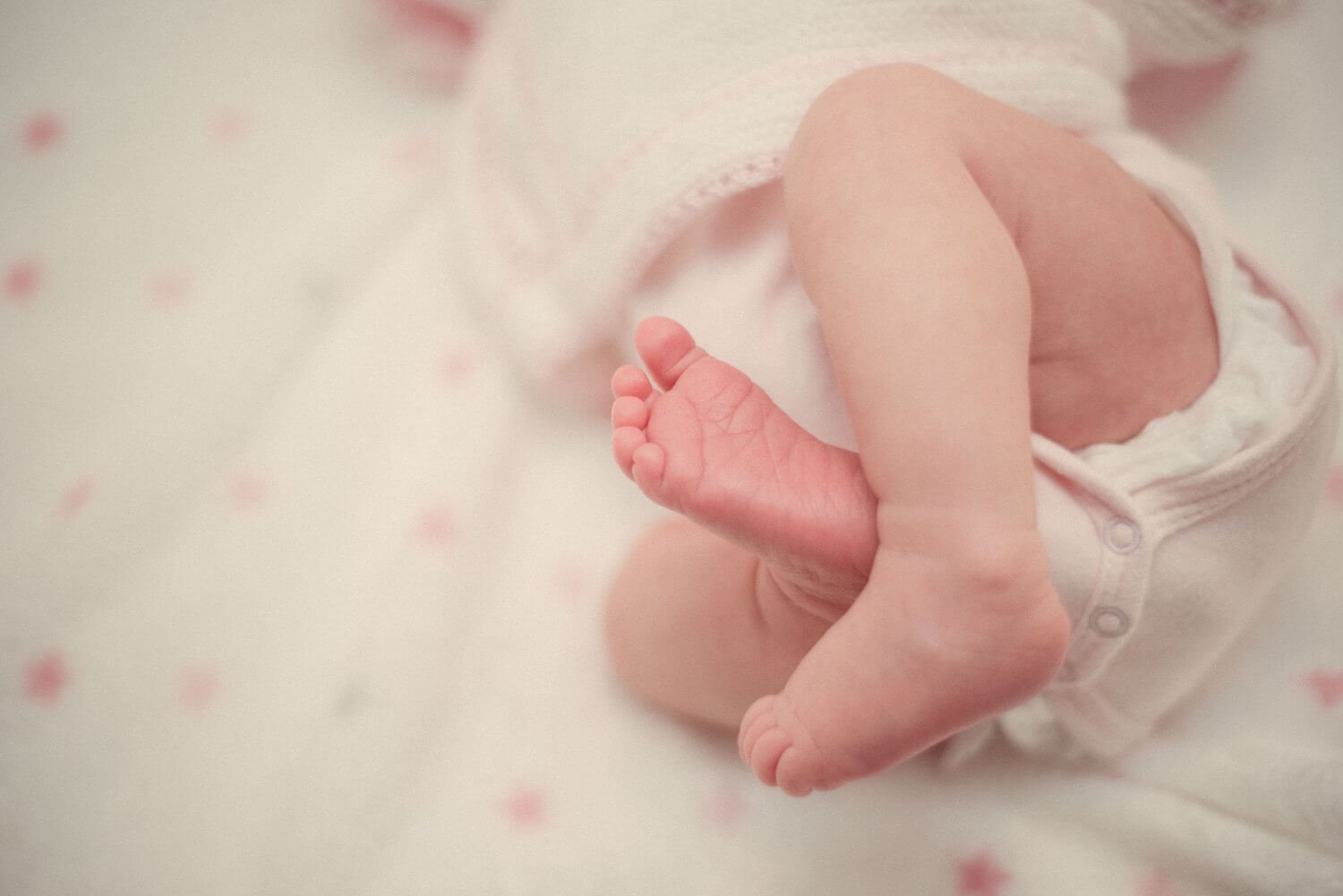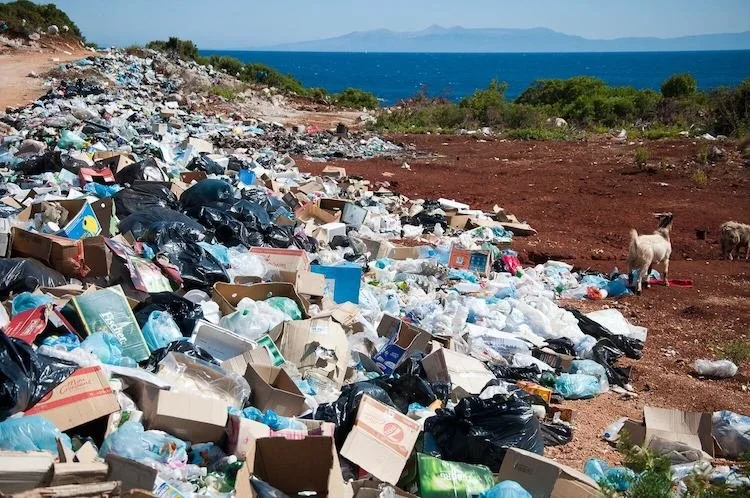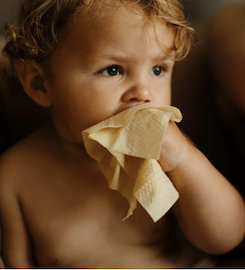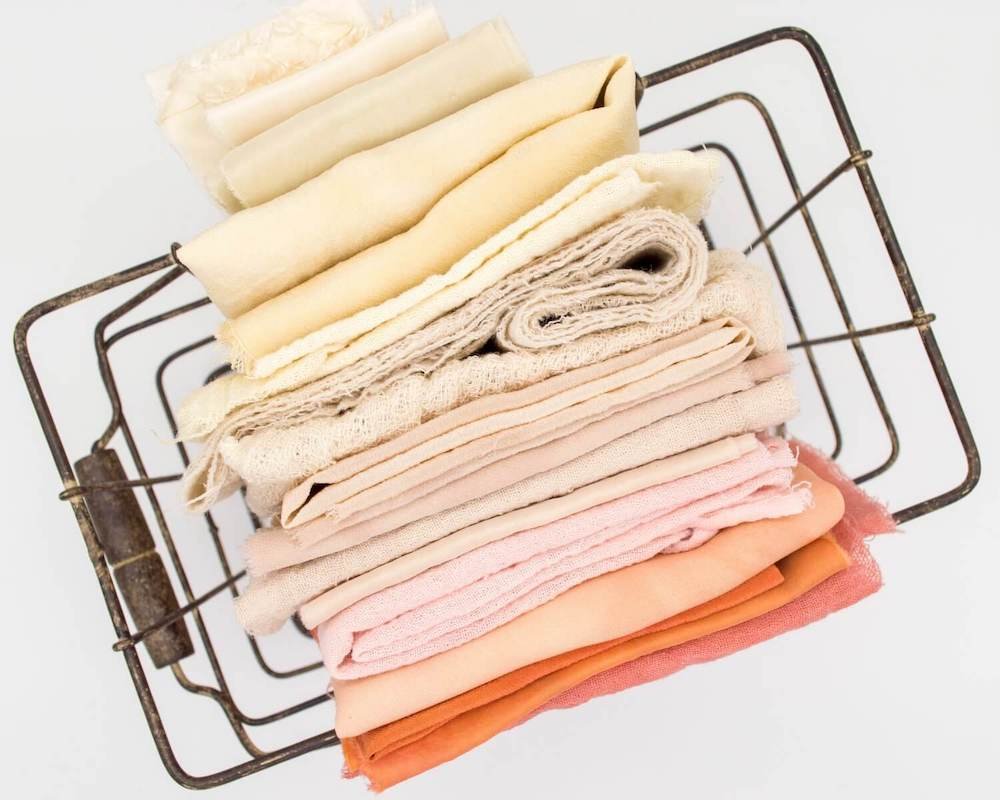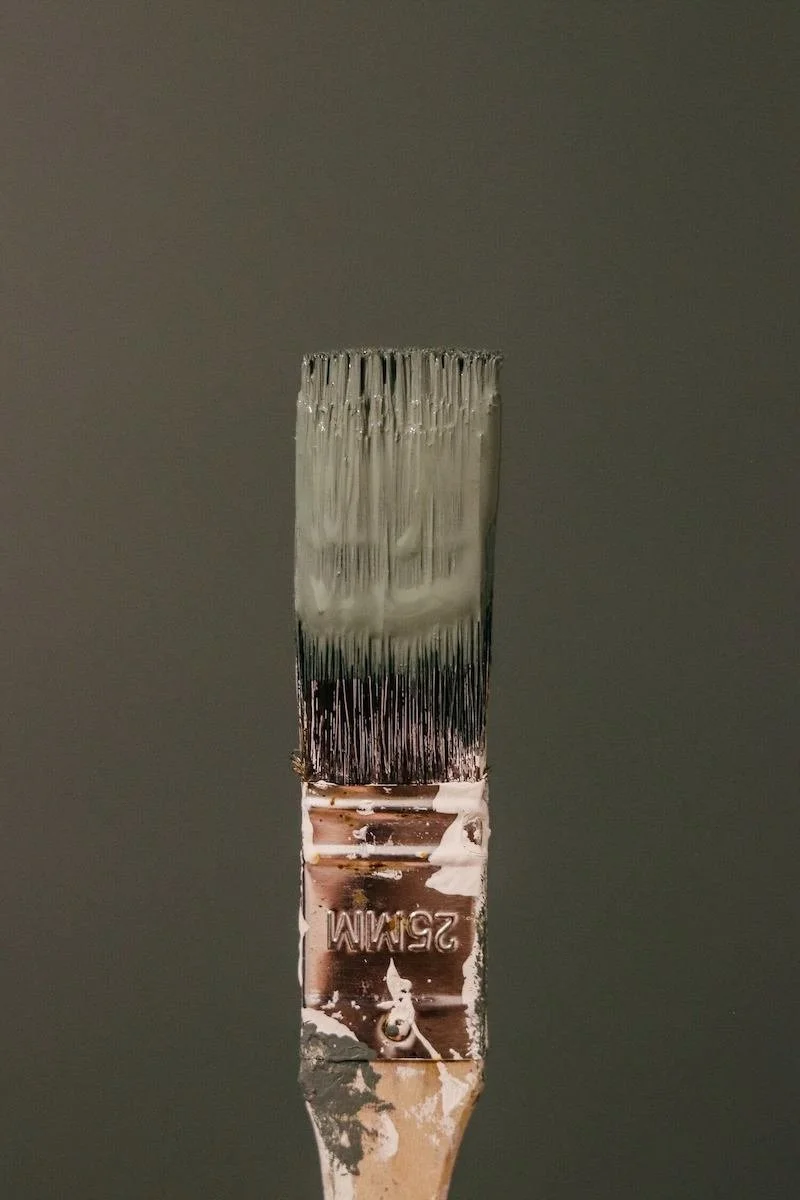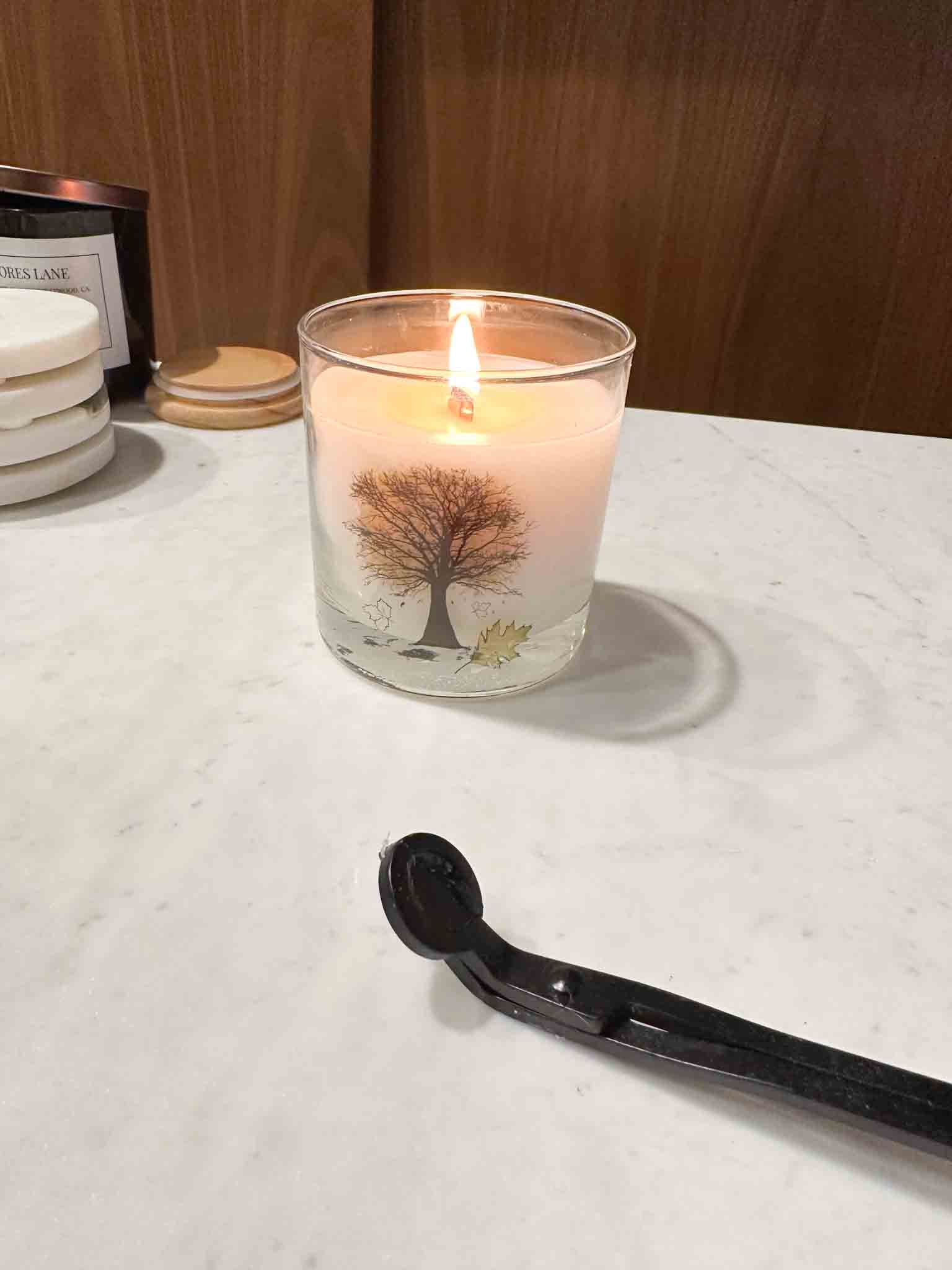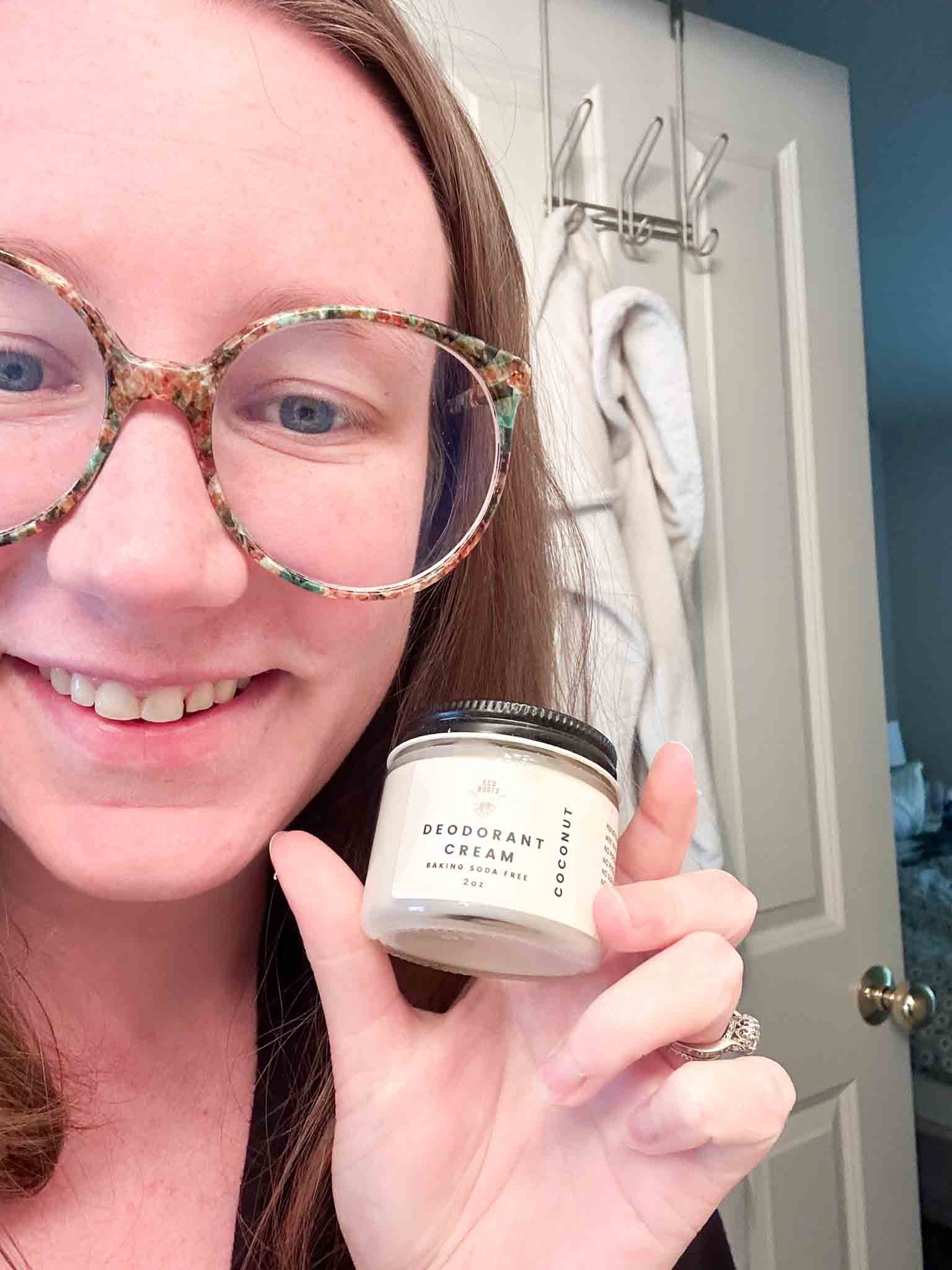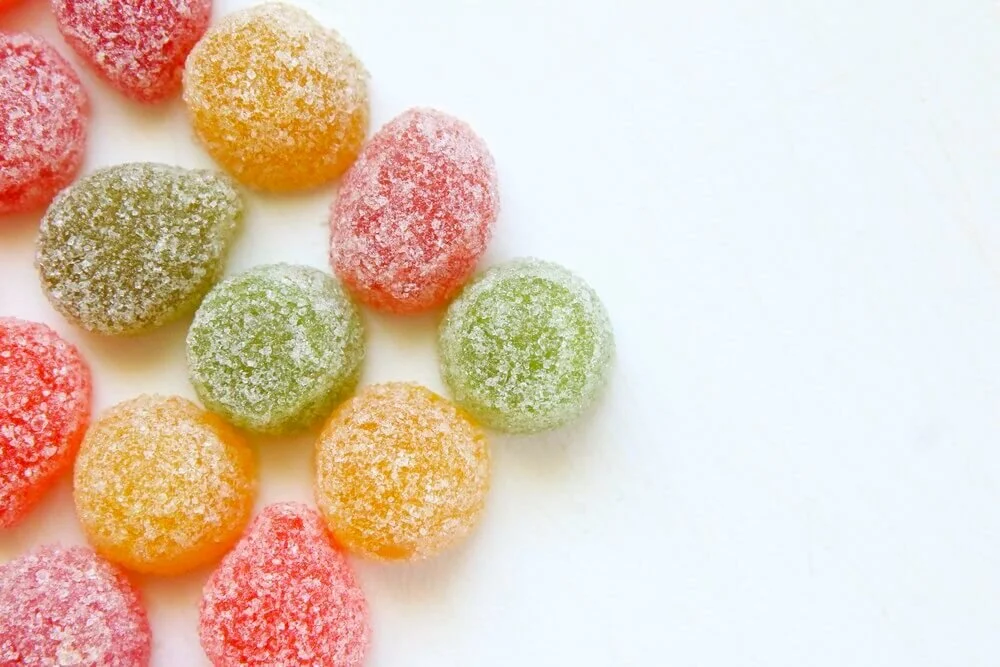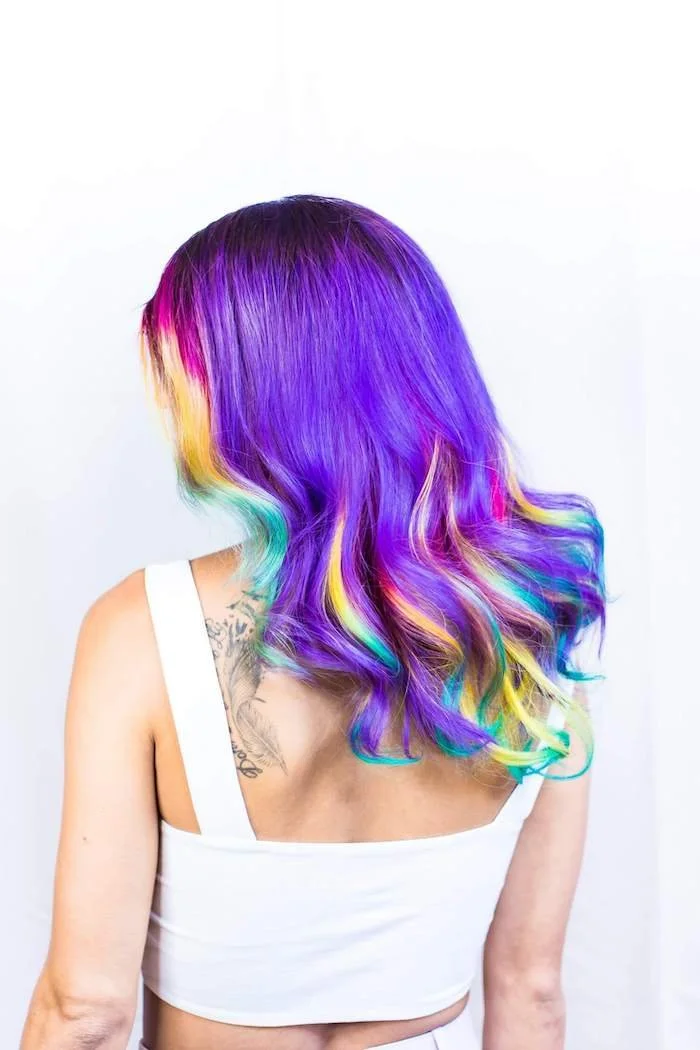The Best Organic, Non-Toxic, & Reusable Baby Wipes
From medical wipes and make-up removers to hand wipes and baby wipes, there are a variety of wipes available serving all kinds of purposes.
Their basic function is to clean your skin, and with increased hygiene alertness due to the pandemic, wipes are used more regularly than before.
They’re especially a lifesaver when it comes to babies, who create all kinds of messy mishaps.
This post does contain some affiliate links. If you decide to make a purchase The Honest Consumer may receive a commission at no additional cost to you.
Whether wiping a sticky mouth, grubby fingers, or a dirty bottom, baby wipes serve many purposes and are always a good thing to have in the diaper bag.
But the very fact that they’re used around such sensitive areas as mouths and baby's bottoms – not to mention that a baby’s skin is more sensitive than an adult’s.
This means we should be cognizant of what exactly is used to make these baby wipes and what effect they could be having on your little one.
This guide will help you learn tips and tricks for finding the best natural baby wipes! We'll discuss harsh chemicals to be aware of in ingredient lists and meet some baby wipe brands using organic and plant-based ingredients for better wipes!
Are Baby Wipes Toxic?
Baby wipes are comprised of a cloth typically made from non-woven microplastic fibers, which are covered in a cleansing solution.
In the latter you’ll usually find water, surfactants (a detergent or cleanser) that remove dirt, moisturizing agents, fragrances, and preservatives.
These materials and ingredients, particularly those present in fragrances and used as preservatives, come with potential negative impacts. We want to be aware of this so we can choose the safest baby wipes for our little ones.
Harmful Ingredients Found in Baby Wipes and their Health Impacts
Skin irritation and allergic reactions are the most common complaint from using baby wipes, but there are other potential health effects. If you’re looking for safer baby wipes, here are some of the ingredients you may want to avoid to minimize the risk of adverse effects.
Let’s start with that catch-all term, fragrance.
Brands do not need to disclose what their fragrances are comprised of, as they are regarded a trade secret. As a result, any number of harmful ingredients could be hiding in whatever cocktail is cooked up to fragrance baby wipes.
This includes phthalates, which are endocrine disruptors. If you're looking for wipes with fragrance try to look for wipes scented with high quality essential oils.
Then there are preservatives. These are an important ingredient in baby wipes because they ensure the product is not contaminated, since the large amount of water in wipes can allow microorganisms to grow.
As with other skincare and beauty products, preservatives allow these items to maintain a reasonable shelf life.
Unfortunately, a lot of preservatives come with potential health effects.
Examples of preservatives include bronopol and DMDM hydantoin. They are both antimicrobial agents that release formaldehyde, which is an irritant that may lead to allergic reactions and rashes.
Other common preservatives are parabens like butlyl-, ethyl-, methyl-, and propylparaben. These may also irritate the skin, as well as disrupt hormones and increase the risk of cancer.
A preservative that is natural and non-toxic is potassium sorbate. It is deemed low-risk by the EWG.
Phenoxyethanol is often used instead of parabens, but is a severe irritant and should especially be avoided when using wipes around the mouth.
Methylisothiazolinone (MIT) is also an irritant that may result in allergic contact dermatitis. It was a commonly used preservative in baby wipes, but in recent years concerted efforts have been made to remove MIT, as well as phenoxyethanol.
Another common ingredient in baby wipes is polyethylene glycols (PEGs).
These help other ingredients penetrate more deeply into the skin. However, PEGs may contain ethylene oxide and 1,4-dioxane both of which have been associated with cancer.
Propylene glycol is another penetrant commonly found in baby wipes that is also an irritant.
Other ingredients that may lead to irritation include sodium lauryl sulfate and sodium laureth sulfate (SLS).
Try avoiding baby wipes marked as antibacterial as these often contain triclosan, another suspected endocrine disruptor, also believed to be contributing to a rise in antibiotic-resistant bacteria.
It’s very unlikely you will find alcohol in baby wipes. Ethanol and isopropanol are sometimes used in sanitizing wipes, but not in branded baby wipes.
Bear in mind that the wipe itself can also be dangerous if your baby chews it, licks it, or tries to eat it.
Chewing or licking may lead your baby to ingest harmful ingredients, while swallowing poses a major choking hazard.
Wipe your child’s fingers, nose, mouth, or whatever happens to be dirty yourself, and immediately throw the wipe away.
On the note of throwing away baby wipes, it’s time to consider the environmental impacts these items have.
It's important to remember just how often we are using baby wipes....they're for everyday use and multiple times a day! Because of the frequency and sensitivity of a baby's skin it's important to choose non-toxic wipes made with cleaner and organic ingredients
What is the Environmental Impact of Baby Wipes?
A baby’s diaper is usually changed every two to three hours. If you’re using wipes every time – not to mention cleaning up all sorts of other messes – that adds up to a lot of baby wipes and a lot of waste.
Where do all those baby wipes go? Landfills, incinerators, and waterways.
The material used to make baby wipes is usually made from plastic such as PET or polypropylene, or from cotton woven with plastic resins. When they end up in waterways they contribute to the problem of plastic pollution.
Even some of the ingredients used in the cleansing solution are (like the plastic used to make the cloth) derived from petroleum, stripping the Earth of even more non-renewable resources.
When whole wipes land up in oceans, rivers, and streams aquatic life may be choked or smothered by them.
Even if the wipes are not consumed whole, they break down into microplastics (leaching chemicals as they do), which are still consumed by aquatic life, disrupting ecosystems and making their way up the food chain to us.
Baby wipes also enter drains as people flush them down the toilet, leading to clogged sewers.
Because they are predominantly made of synthetics, baby wipes take a very long time to break down.
As they wash down drains and into sewers they bunch together and trap other waste, forming what is known as fatbergs (clumps of wipes and fat from food waste).
These fatbergs create major blockages that take a lot of money and resources to unblock and clean up. Even if a wipe is labeled "flushable," you should never flush the down the toilet.
To lessen their impact on the environment, keep these tips in mind when shopping for or using baby wipes.
Look for biodegradable wipes made from 100% organic cotton or bamboo.
Do not flush baby wipes down the toilet – even if the packaging says flushable, compostable, or biodegradable, rather throw them in the trash. Bear in mind that biodegradable and compostable are not the same thing and that compostable baby wipes are no longer compostable if they have been contaminated with something like feces or dairy.
Do not use baby wipes for anything other than your baby. If you spill something on the counter, use a dishcloth and water to clean up the mess.
Choose organic baby wipes. These are made with natural and sustainable materials and contain fewer or no toxic ingredients that may be harmful to your baby’s health.
Consider the packaging the wipes come in. Aim for compostable and/or recyclable materials.
Where Can I Buy Non-Toxic Baby Wipes?
Non-toxic and organic baby wipes can be purchased at select stores and online! This list will easily outline it for you!
We know products made with organic ingredients tend to have a higher price point, so we've created two lists of baby wipe brands for you!
The first list features brands using organic ingredients and the second list is brands using non-toxic! They're all a great option for parents looking to find cleaner disposable wipes for their baby's bottom.
Plus, for those who are interested in an even more sustainable option: we cover reusable cloth wipes as well!
Almost all of the products mentioned are available online or from major retailers to ensure accessibility and affordability.
The Best Natural Baby Wipes Made with Organic Ingredients
If you're looking for some of the best baby wipes made with organic ingredients then this is a great list! Discover sensitive wipes made with bamboo fibers, aloe vera, organic coconut oil, and other clean natural ingredients for healthy skin.
Babyganics Baby Wipes Made with Organic Ingredients
Founded by two dads, babyganics makes safe, thoughtful products for babies. Offering diapers, wipes, and creams, as well as sunscreen and insect repellents, their products are made using organic, plant-derived ingredients as much as possible.
They don’t use sulfates, phthalates, parabens, or synthetic fragrances and they do not test on animals. These wipes feature certified organic ingredients such as olive oil, calendula oicinalis lower extract, aloe barbadensis extract, and more.
These eco-friendly wipes range in price from $4-$28 depending on quantity. Sustainable parents can purchase packs of 80, 240, 400, or 800.
Ecoriginals Non-toxic Wipes with Organic Ingredients
Ecoriginals was born out of the desire of a husband and wife team in Australia to see more eco-friendly baby products on store shelves.
Their biodegradable baby wipes are made from bamboo with the cleansing solution comprised of purified New Zealand water, organic aloe vera extract, vitamin E, chamomile essential oil, and soybean amino acid.
They also have wipes made with organic manuka honey – known for its anti-inflammatory and anti-microbial properties – as well as one made with organic goat’s milk containing skin-repairing vitamin A.
The bamboo wipes contain no phthalates, synthetic fragrances, or parabens. These wipes can be purchased in a three pack set for $25 or a 12 pack set for $90.
Healthybaby's Biodegradable and Organic Cotton Wipes for Baby's Sensitive Skin
Supplying diapers, wipes, skincare, and homecare products, Healthybaby is all about keeping your baby healthy.
Founded by Shazi Visram, she started her organic business journey in 2003 bringing organic baby food to the market with Happy Family Organics, and has since expanded to baby and maternal care with Healthybaby.
This certified B Corporation creates water and plant-based wet wipes are formulated with organic aloe, honeysuckle, chamomile, and vitamin E.
The wipes are also EWG-verified and biodegradable. In addition, Healthybaby offers dry wipes made from organic cotton, allowing you to make your own wipes at home with purified water.
Their biodegradable wipes can be purchased in a four pack for $28 or a eight pack for $60.
NataCare's Organic Cotton Eco-friendly Baby Wipes
Specializing in eco-friendly and sustainable feminine hygiene products, NatraCare also offers intimate wipes, make-up removers, and baby wipes.
Their baby wipes are made from organic cotton infused with organic chamomile, apricot, and sweet almond oil. It is free from sodium lauryl sulfate and contains no parabens or other synthetic preservatives, including methylisothiazolinone (MIT).
Certifications include USDA Organic, Soil Association Organic, and Made Safe. They are vegan-approved and EWG-verified. These wipes can be purchased for $4 to $6.
This brand can also easily be found at stores such as Fred Meyer, Sprouts, Whole Foods, Natural Grocers, Kroger, PCC Natural Markets, and more!
Niki's Moisturizing Wipes Made with Organic Coconut Oil
Niki’s natural wipes contain no phenoxyethanol, petrochemicals, formaldehyde, or parabens. They are pH balanced, have been independently tested by EuroFin Dermatologists, and are certified safe for use on sensitive skin.
Ingredients include manuka honey, organic coconut oil, chamomile extract, palm-free vegetable-derived glycerine, grapefruit extract, and glucono-delta-lactone, a preservative derived from corn and food-grade preservative salt.
These wipes can be purchased in a four pack for $20, 12 pack for $55, or $24 pack for $100.
Jackson Reece’s Organic Chamomile Infused Wipes
Jackson Reece baby wipes are made from 100% biodegradable wood pulp that decomposes in just 60 days. Their packaging is 100% recyclable.
These plant-based wipes are soothing and anti-inflammatory, infused with organic chamomile, aloe vera and suitable for sensitive skin.
They're free from alcohol, parabens, frangrance, SLS, SLES, lanolin, phthalates, perfume, phenoxyethanol or benzoates. Single packs of wipes start at $3.75 but they're sold in bulk for optimal savings!
The Best Non-Toxic Baby Wipes
These brands aren't using organic ingredients, but they are using cleaner, more natural, and less toxic ingredients. Some of these brands have a lower price point and may be more accessible.
Seventh Generation's Hypoallergenic Wipes
Seventh Generation's Sensitive Protection Cleansing Baby Wipes are clinically tested, hypoallergenic, and free of fragrances that could irritate baby’s delicate skin.
While Seventh Generation doesn't use any organic ingredients, their ingredient list does feature a lot of plant-based ingredients.
Seventh Generation's wipes are Leaping Bunny Certified, Forest Stewardship Council Certified, and certified by the National Eczema Association.
These wipes can be purchased for $2-$15 depending on the quantity. They're also conveniently sold at Walgreens and Whole Foods.
Hello Bello Baby Wipes
Founded by parents Kristin Bell and Dax Shepard, Hello Bello offers high quality baby products at affordable prices. These hypo-allergenic, plant-based wipes made with 99% water, with a touch of aloe and chamomile extract.
These wipes are fragrance free and contain minimal ingredients. They are not flushable. A single pack starts at $3.49 and you can buy in bulk and subscribe to save more. These are also available in most major retailers and on Amazon.
EcoPeaCo
EcoPeaCo's wipes are made from unbleached bamboo. They're biodegradable, responsibly made, and they are vegan and cruelty-free.
These wipes are great for sensitive skin as they are made with water, aloe, chamomile and cucumber extract. The ingredients are plant and mineral-based that are all USDA certified 99% biobased.
They're also fragrance-free and hypoallergenic with no harsh chemicals like parabens, phthalates or formaldehyde. EcoPeaCo is part of 1% for the planet and their wipes are certified by the EWG.
A single pack of wipes is $7.49 but you can bundle and/or subscribe for savings.
Coterie Baby
Coterie baby wipes are compostable and biodegradable. They're made with 100% compostable fibers sustainably sourced. They're made of 99% water and the other 1% are ingredients that are gentle on the skin like vitamin E.
These wipes are also paraben, dye, and fragrance-free. Coterie wipes are 30% larger than the average baby wipe to ensure full-coverage and less mess! A pack costs $7.50 but you can buy in bulk to save!
WaterWipes Plastic Free Baby Wipes
WaterWipes are now plastic-free (the packaging is still made from plastic) and gentle on baby's skin.
With just two ingredients: Water (Aqua) 99.9% and Citrus Grandis (grapefruit) seed extract (but the website does state the grapefruit seed extract contains trace of Benzalkonium Chloride).
They have no artificial fragrance, sulphates, or colors and are suitable for sensitive skin. They have the National Association of Eczema seal of approval. They're available in most stores, including Amazon, Target, Walmart and more!
What About Cloth Baby Wipes?
Stressing about each wipe used and tossed in the trash? Stress less. If you're looking to take sustainability one more step and further reduce your impact, consider trying reusable wipes!
Some benefits of reusable wipes: they're more cost effective, better for the environment, and you get to be fully in control of each component from the type of fabric in the wipe to the ingredients used in the wipe solution.
Many traditional baby wipes have plastic incorporated into the cloth to make them stronger. When these wipes begin to breakdown they begin to release microplastics.
The harm in that? Microplastics are microscopic and impossible to see (and remove once released).
They damage the eco-system, harm wildlife, and while the impact they have on human bodies is not yet known, they have been detected in human blood and even in utero.
Thinking about the amount of plastic we leave in our wake is overwhelming. But you can make small swaps here and there to lessen your single-use plastic consumption and feel less overwhelmed.
When shopping for cloth wipes look for ones made with 100% cotton or hemp, organic cotton, unbleached, chemical and dye-free fabrics.
How to use reusable cloth baby wipes:
They can be used wet or dry! Simply spray or soak the wipe with your preferred gentle baby cleanser (which you can DIY!), wipe your baby, and then use a dry wipe to dry any excess moisture.
Then wash the wipes and use again! Store them in a resealable container and wash the wipes after each use.
These are not just great for diaper wipes, but can be used as wash cloths and bath wipes as well!
When you're on-the-go, you can use a wet/dry bag or reusable zip bag like Stashers to carry your pre-moistened wipes. Just be sure to bring a separate bag for the used ones to keep them separate from the clean reusable cloths.
Another huge benefit of reusable cloth? You can use then for everything.
Once your baby grows out of diapers these cloths can be used for any mess. While a slightly bigger up-front cost, the rewashes are limitless and the cost-per-cloth diminishes with each use.
Adults can use them too! They're gentle enough to use on your face to remove makeup or as a washcloth, and make great on-the-go towels for cleanup. Keep them in your purse, diaper bag, car...anywhere you might have or make a mess!
The only con we see? Reusable cloth wipes take a little pre-planning and prep, but the pros really outweigh the cons! If you're curious about the reusable cloth experience, check out these brands for super-soft, super-sustainable cloth options.
The Best Reusable Baby Cloth Wipes
Babee Greens’ Organic Cotton Hemp Cloth Wipes
Babee Greens wipes are made from organic cotton and hemp and free from chlorine, alcohol, PEGs, sulfates, parabens, artificial fragrances, or dyes.
They're completely washable and reusable. Babee Greens also sells a gentle baby cleanser to use with their cloth wipes, or you can make your own! A pack of 12 clothes starts at $16.
Marley's Monsters Handmade Reusable Cloth Wipes
Marley’s Monsters cloths are handmade in Eugene, Oregon from organic cotton flannel. They also have print and colored versions made from 100% cotton flannel but those are not made with certified organic cotton.
They are machine washable but may have some slight shrinkage after the first wash. A 12-pack starts at $20.
Charlie Banana’s Sustainable Reusable Baby Cloth Wipes
Made from 100% organically grown cotton, these reusable cloth wipes are not only super soft but sustainable and reusable.
Charlie Banana is a company committed to the environment. They understand how catastrophic an impact single-use plastics and materials can be to the environment.
Their products are all reusable, sustainable, and Charlie Banana is part of 1% for the planet. A 10-pack starts at $15 but you can bundle and bulk purchase to save.
Bumkins Unbleached Cotton Wipes
Bumkins 100% unbleached cotton flannel wipes are made to be used and reused! Made with no harsh chemicals, you can use them dry or wet, with your preferred cleansing solution. Available on amazon! A 12-pack starts at $14.
Hopefully this guide helped you learned what to look out for when reading an ingredients list, discover some different brands using organic materials, and provide the information you need to make an educated decision on what to use for your child!
There are so many options that it can feel overwhelming. Just remember, the most important thing you can do is your best. Find the product that suits your budget, your needs, and your family best.
Small choices can make a big impact over time!
For more ethical & sustainable tips be sure to follow The Honest Consumer on social media, subscribe to our newsletter, & check out the Ethical & Sustainable Brand Directory.

